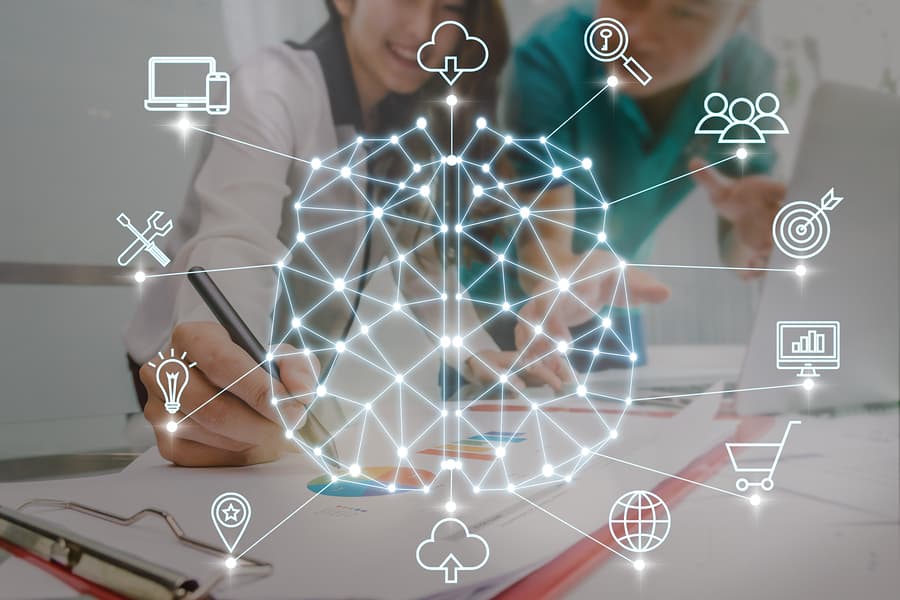How AI Technologies Are Revolutionizing the Workplace

How AI Technologies Are Revolutionizing the Workplace
By John Bemis On May 30, 2018 · In Technology
Updated: July 10, 2023
There’s a lot of concern and many questions about the impact of artificial technologies in the workplace. Are AI technologies it capable of replacing jobs? Or even entire industries? What’s the cost – financially and ethically – of incorporating automation into the workforce? As demand for engineers and developers with machine learning skills grows, so does the call for answers.
Jumping to conclusions is natural, especially when AI is frequently perceived as a major threat to work life as we know it. Luckily for us, AI technologies intelligence when it comes to development is optimized to assist humans, not compete with them.
What are AI Technologies?
AI technologies, also known as machine intelligence or a machine’s capability to perform tasks that replicate specific human functions. They include the ability to plan, learn, reason, problem-solve, manipulate, and socialize.
The developments in AI currently have been categorized as weak AI, also known as narrow AI, named after its ability to focus on one narrow task. These systems have been taught by humans how to carry out distinct responsibilities without being deliberately programmed how to do them. Software that uses technologies like natural language processing, data mining, and pattern recognition are all weak AI.
Strong AI, or artificial general intelligence, is also being developed. These systems are meant to have the cognitive and adaptable abilities of humans. This AI doesn’t exist yet, with most expert opinions divided on when it will come to fruition.
Using Machine Learning to Prompt Growth
According to CNBC, by 2020, AI tecnologies will generate 2.3 million jobs, exceeding the 1.8 million it will remove. As during any technological revolution, jobs will be replaced with machines that can complete work more efficiently. There has been significant growth in several technical areas, with positions such as data scientists, computational linguists, machine learning engineers, and robotics process automation (RPA) developers increasing in demand. Employer demand for artificial intelligence in the workplace has more than doubled over the last three years.
Most importantly, humans and AI technologies are meant to complement each other. As machine automation progresses, new jobs will be created that require new and emerging skill sets. Focusing on AI augmentation, the combination of human and AI working together, is crucial to preparing the current workforce for this impending upheaval. 82% of 3,300 executives shared that they expect their employees and machines to work as “integrated teams” within the next few years.
Making Better Business Decisions with Automation
AI technology can assist with more than just basic work. Machine learning can help with hiring, employee retention, predicting employee behavior, and more. During the hiring process, AI can identify candidates by sifting through mountains of resumes to pinpoint specific skills and past work experience. It’s able to evaluate these CVs in comparison to existing high-performers to recognize patterns and determine which applicants have the most potential. On top of that, AI removes human bias, eliminating favoritism and discrimination.
When applied towards analyzing employee data, AI can give insight on why employees are leaving and identify problem areas so that employers can make necessary policy changes. It can also run machine learning techniques to predict potential problem areas before they exist.
Employers aren’t the only one’s looking forward to the implementation of these programs. A Workforce Institute survey found that employees would welcome AI if it increased fairness in subjective decisions (62%) or ensured managers made better choices affecting individual employees (57%).
How Artificial Intelligence is Revolutionizing the Workplace
AI technologies are a positive force in the workplace. It’s a tool that’s meant to enhance jobs and increase efficiency by making faster, informed business decisions. Ultimately, AI serves to make everyone else’s lives a little easier. Automation isn’t the end, but only a means towards productivity. So, while you may fear that robots will eventually take over your job, at the moment, they’re a little busy.
Interested in learning more about the inner workings of AI? Benchmark IT pros can help.
Related Articles
The Most In-Demand Technologies of 2018
Making Tech Training and Development a Part of Your Culture
Beyond Talent Acquisition: Retaining Tech Talent When the Market is Strong
TAGGED WITH → Technology
